Forced Out: LGBTQ+ veteran Elaine Chambers on ‘vindication’ after ruthless military discrimination
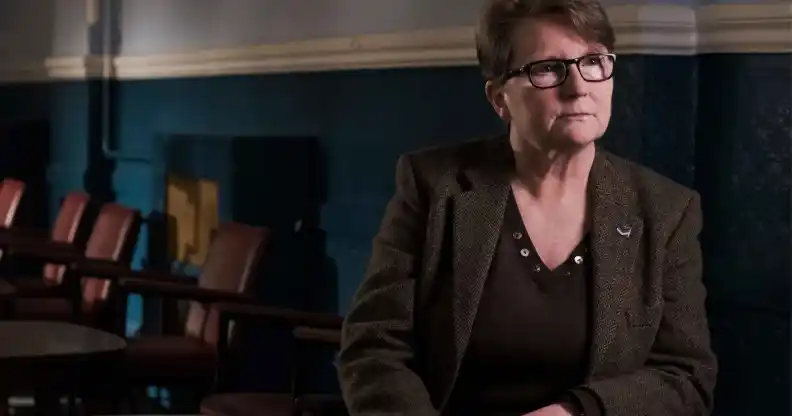
Former army nurse Elaine Chambers, forced resign in the 1980s because she was a lesbian, tells PinkNews about powerful new documentary Forced Out.(Sky)
Former army nurse Elaine Chambers, who had to resign from the military in the 1980s because she was a lesbian, tells PinkNews why she’s sharing her story of being dishonourably discharged in Sky’s damning new documentary Forced Out.
Nothing could have prepared junior sister Chambers for the fateful phone call she received in the summer of 1987, five years into her successful military career.
After accusations of “unwanted advances on two female nurses”, the events that followed – powerfully recounted in Sky’s new documentary, Forced Out – exposed the darkest depths of institutional homophobia within the British armed forces.
But in 1991, it also brought together an unlikely group of ousted LGBTQ+ veterans, led by Chambers and dismissed military musician Robert, who successfully campaigned for the Ministry of Defence to repeal its ban and fought for another four years to receive compensation, before finally disbanding in about 2005.
“We’d battled for 14 years in total,” Chambers, now 62, tells PinkNews. “The ban was lifted, we thought there was nothing else to be done. To be approached to tell this story now feels like a vindication.”
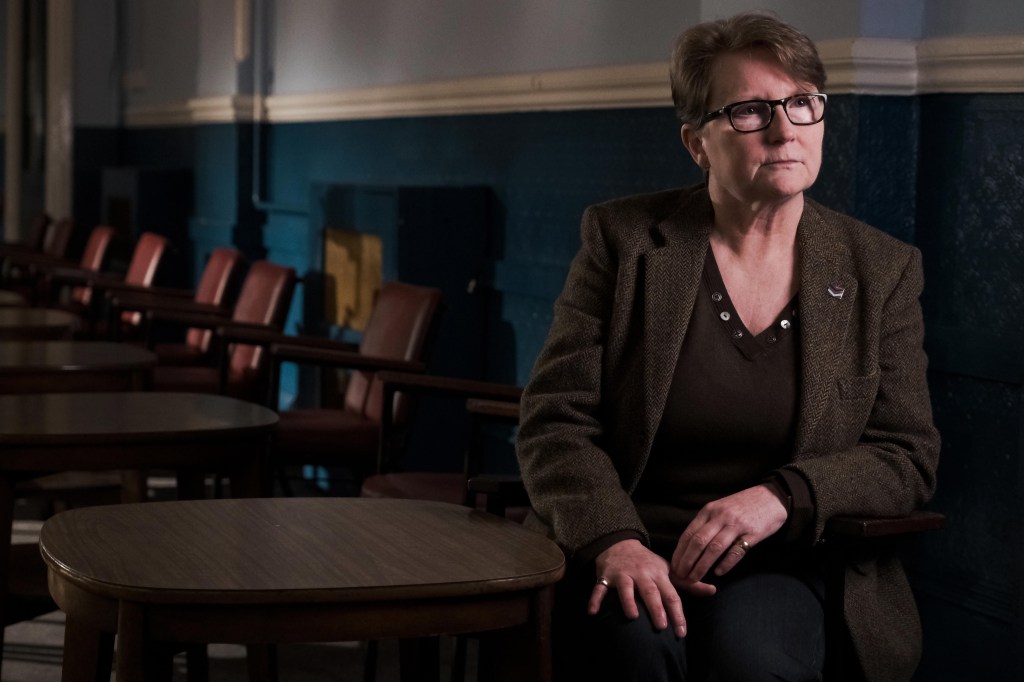
Homosexuality was partially decriminalised in the United Kingdom in 1967 but remained illegal in the armed forces (the army, Royal Air Force and Royal Navy) until the ban was lifted in January 2000.
As the UK government now undertakes an independent review, collating stories from affected military personnel, Forced Out sheds light on just a handful of heart-breaking testimonies, including from Chambers.
Although the armed forces are currently an outstanding LGBTQ+ employer, just a few decades ago they subjected countless LGBTQ+ people to cruel interrogations, unethical physical exams and conversion therapy. Many servicemen and women were stripped of their medals, denied pensions and even faced imprisonment, leaving some feeling suicidal.
Chambers, who was 21 when she was deployed to Germany in 1982, recalls having a “beautiful, erotic, moving and explosive” first kiss with colleague Sadie, which is one of several scenes from her time in the military re-enacted in the documentary.
After being warning by Sadie of the disastrous consequences if they were discovered, Chambers went on to date only men despite being resolute in her identity as a lesbian.
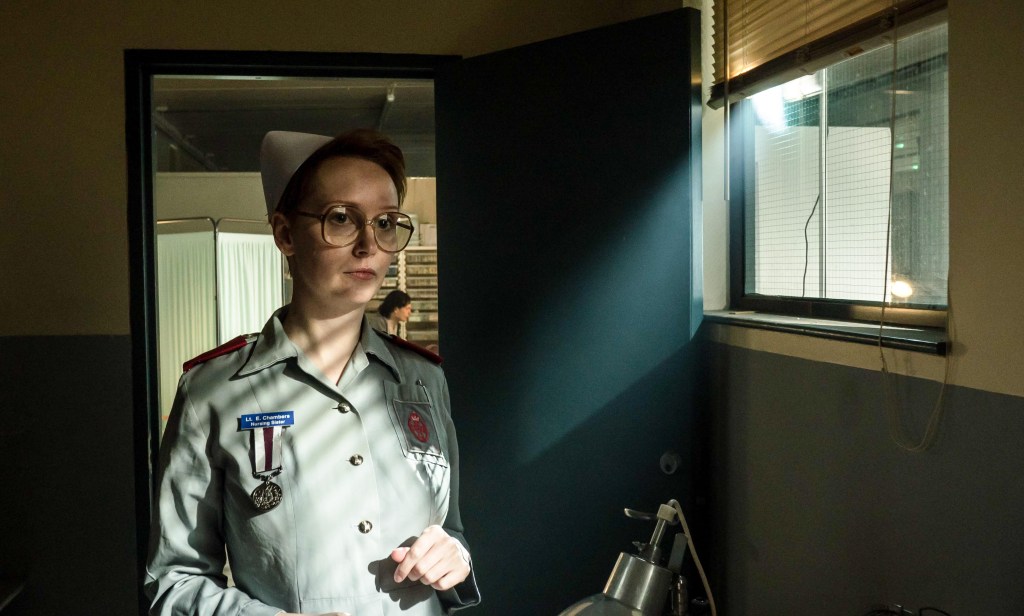
“I was pretty steadfast [in who I was]. You could say: ‘Why would you go out with men if you know you were gay’, but I did this not because I didn’t deep down understand who I was, but because I knew the price I would pay if it became public knowledge,” she explains. “The potential of a really long and successful career was too much of a risk to lose”.
Despite her best efforts, an investigation was opened against her. Officers tore apart her room, eventually finding hidden letters and postcards in which she discussed her sexuality. It spelled the unceremonious end of Chambers’ career.
“At the time, I knew there were loads of lesbians in the army, absolutely loads, who managed to keep things quiet.” One of them, we now know, was army veteran turned champion athlete Kelly Holmes.
“Most people were much more savvy, they made sure there was nothing in their rooms that would incriminate them, they would keep no diaries, no letters, nothing. I was very naive and never imagined any reason that the military police would come along and interrogate me in the way they did for 15 hours”.
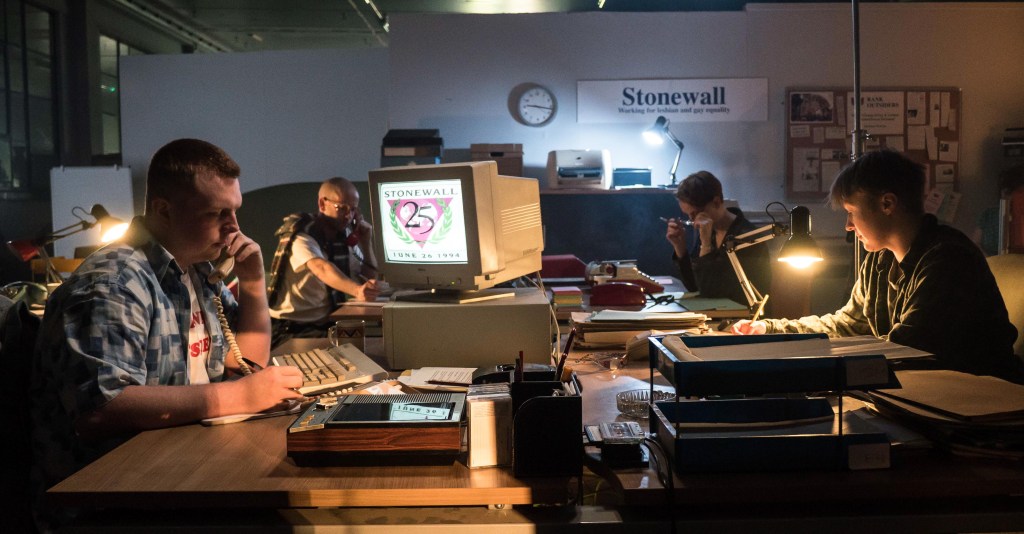
Although the highest ranks of the military enforced institutional homophobia, in Chambers’ day-to-day life it was an entirely different story.
“Most of my patients were civilians,” she says, “with the freedoms to be who they wanted to be. And as a nurse you are being taught to think for yourself and have autonomy.”
She describes her colleagues as “bright, charming and ordinary people” who didn’t have a problem with her sexuality.
With her career in tatters, she returned home in 1987 and discovered the London gay scene. Slowly, she began to “come out to herself again”, and that’s when everything changed – this time for the better.
While attending a lesbian discussion group at famed queer bookshop Gay’s The Word, she saw a advert in The Pink Paper. Robert Ely was looking for others who had been banished from the military because of their sexuality.
“It was amazing,” Chambers recalls of their first conversation. “It was the first time either of us had somebody to speak to who not only understood being gay but everything that had gone on with being questioned, understanding military terminology and what it all meant.”
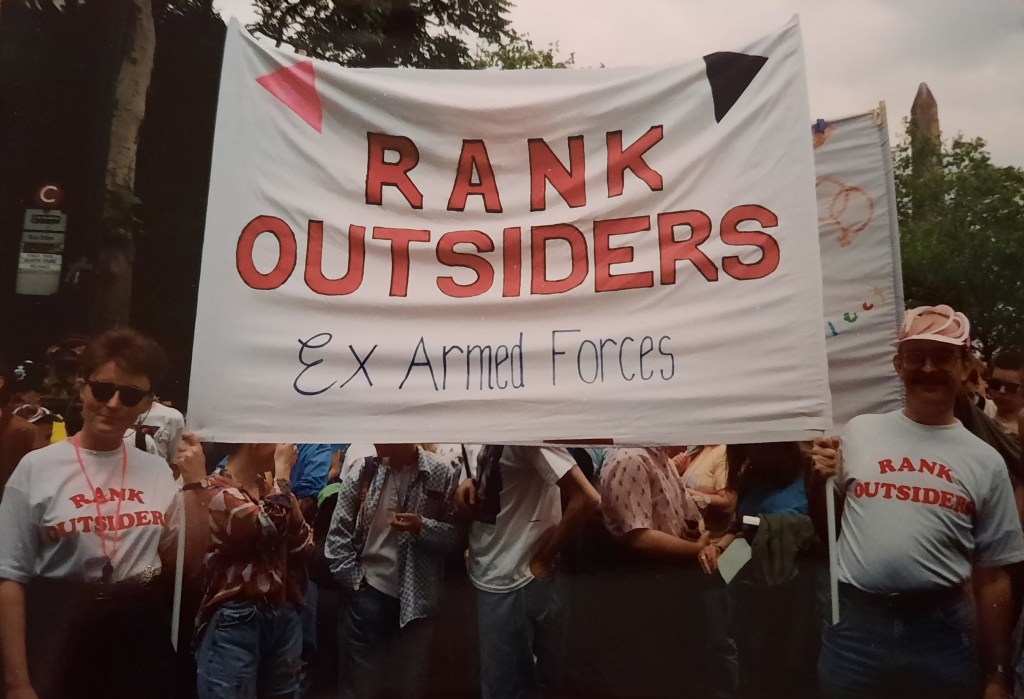
Together they created Rank Outsiders, a support group for exiled LGBTQ+ veterans that later turned its focus to actively educating others and repealing the ban. But as the legal challenge progressed all the way to the European Court of Human Rights in Strasbourg at the turn of the millennia, splinter groups led by activists such as gay Royal Navy veteran Ed Hall, Stonewall and serving military took over the fight.
“It was as if the Rank Outsiders had done the groundwork and, intentionally or not, were then dropped to the wayside,” she admits. “Once the ban had gone, they set up in-house online support for serving personnel and we weren’t needed any more.
“For most of us, the chance to rejoin the military has gone, so that was quite difficult and frustrating.”
While Chambers, who published her memoir This Queer Angel in 2019, is happy that her story has made it to the small screen, she is sceptical about the government review, which promises tailored support for LGBTQ+ veterans, given her past “inadequate” compensation.
“There is this feeling that because it’s different people and a new era, we won’t be disappointed again,” she says. But struggling in a “not particularly well-paid” admin position at the local GP, Chambers wants meaningful financial recompense.
“For a lot of people, the emphasis is on a meaningful, high-ranking public apology,” she says.
“Some have said is should be [from] the prime minister, others say it should be the King because we served allegiance to the Queen and our fellow Brits.
“We were prepared to put our lives on the line to protect everyone else’s freedoms when we didn’t have any. But I’m not particularly fussed about an apology because it isn’t going to help me pay my energy bills.”
As for what people take forward from Forced Out, she hopes they make sure something like this never happens again.
“If we don’t know what came before, it can turn on a sixpence,” she says. “We see it all over the world, there are still 70 countries where it is illegal to be gay. We should never ever take it for granted. It’s important to know our history and make sure it doesn’t go back to the dark days.”
Forced Out airs for the first time on Sky Documentaries at 9pm on Thursday 8 June.
How did this story make you feel?

